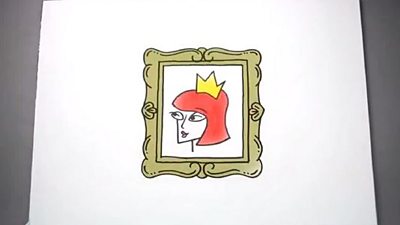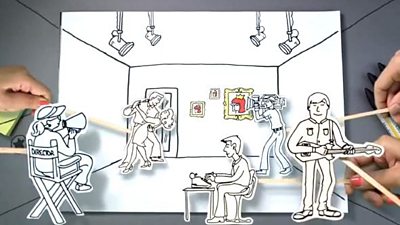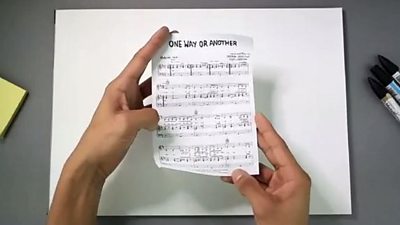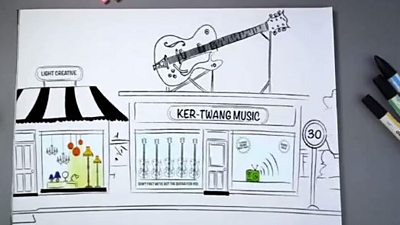Copyright is legal right that protects the use of your work once your idea has been physically expressed. The current copyright legislation in the UK is the Copyright, Designs and Patents Act 1988. You can find out more about copyright legislation by visiting the Intellectual Property Office.
Copyright law lays out a framework of rules around how that work can be used. It sets out the rights of the owner, as well as the responsibilities of other people who want to use the work. You can do many things with your copyright work including for example copy, change or sell it, share it online or rent it to someone as well as prevent other people from doing those things.
The UK has one of the strongest creative sectors in the world. According to government statistics published in January 2014, the creative industry generates an average of £8 million every hour. Every time you watch an online clip, listen to music, read your favourite blog, or enjoy something creative, you are interacting with copyright in some way. Copyright protects most creative things you create, too.
When is my work protected by Copyright?
For your work to be protected by copyright law it needs to be original and tangible.
- Original For a work to be original it must be the product of your own skill and labour or intellectual creation and
should not just replicate the work of someone else (such as imitating a drawing or a painting). This is to prevent simple things like writing a poem consisting of a single word being automatically protected by copyright. Otherwise, being creative in daily life would be impossible without stumbling into someone else's copyright.
- Tangible This means that it can’t just be an idea you've had. Instead you need to have expressed that idea in a physical form. When you make up a tune in your head, it is only protected by copyright from the moment you write down the musical score or record a performance of it.
How do I copyright my work?
Copyright protection arises automatically as soon as your work is created. Unlike a patent or trademark, you don’t need to register your work to ensure your rights are protected by copyright.
Copyright however may not protect all forms of creativity, and in some cases a different form of Intellectual Property (IP) protection may be more suitable. You can find more information about the different forms of IP protection and what they do on the Intellectual Property Office website.
How long is my work protected for?
The period your copyright work is protected for depends on a number of factors such as the type of work you have created and when it was made. For example, when you write a poem your work will be protected until 70 years after your death. But if you act in a play, any rights in your performance are protected for a period of 50 years.
The Copyright, Design and Patents Act 1988 gives you a longer period of protection than previous historic legislation. For information on the history of copyright click on Related Links.
Is my work protected outside the UK?
Each country has its own copyright law and copyright practice can vary, but most countries will protect works created in other countries in the same way that they protect their own citizens’ creations. Click on the Related Links for further resources.
How did copyright come about?
The first copyright Act of Parliament dates back as far as the 18th century to the Statute of Anne in 1709. The concept of protecting a work from being copied and sold by other people though is even older.
This can be traced back to the invention of the printing press by Johannes Gutenberg in the 15th century. It was at this point in history that a greater emphasis was placed on the notion of protecting your work, as a small number of people began using, printing and selling copies of other people's work in large amounts and selling them for a profit. Through the Statute of Anne, writers could choose who to allow to copy their work, for a period of 14 years. They could decide what to charge for the copies and choose their own printers.
As well as providing a greater level of control, copyright law had another effect. By having a set of legal rules controlled by parliament, authors and other creative people could be rewarded for their creative time spent, (what today's copyright law calls “labour and skill”) in ways like a wage or a salary. This gave them an income to put towards the day to day cost of living, and time to spend on being more creative.
While the UK focussed on the right to copy or "copy-right", other countries like Germany or France took a more philosophical approach. There it was regarded as a human right and the process of creating something original like a book or a poem was seen as an act inspired by God.
Both of these legal statutes, the Urheberrechtsgesetz in Germany and the Droit d’auteur in France, literally mean “authors’ rights” or “rights of the author”.
There are, however, unifying standards such as those set out in the Berne Convention of 1886 which means that copyright works are protected in law regardless of whether they leave the country they originated in. If a work by a French author was illegally copied here in the UK for example, UK courts would protect the rights of the French author in the same way as for a UK citizen. The idea of the Berne Convention came from the famous French author Victor Hugo (author of Les Miserables) and can be said to derive from the French school of thought of author’s rights.
Signatory countries of the Berne Convention are effectively working in partnership across the globe to protect copyright when it leaves its home borders. This is probably even more important today in our global internet age than it was in 1886 when it was created. For more information on copyright outside the UK, visit the World Intellectual Property Organisation.
Copyright Aware
-
 What is Copyright? How does it work and who is it for?
What is Copyright? How does it work and who is it for? -
 Copyright & Permissions One piece of work can contain several layers of copyright
Copyright & Permissions One piece of work can contain several layers of copyright -
 Exceptions The legal exceptions for using copyright
Exceptions The legal exceptions for using copyright -
 My Copyright You create copyright all the time. Find out what you can do with it.
My Copyright You create copyright all the time. Find out what you can do with it.
